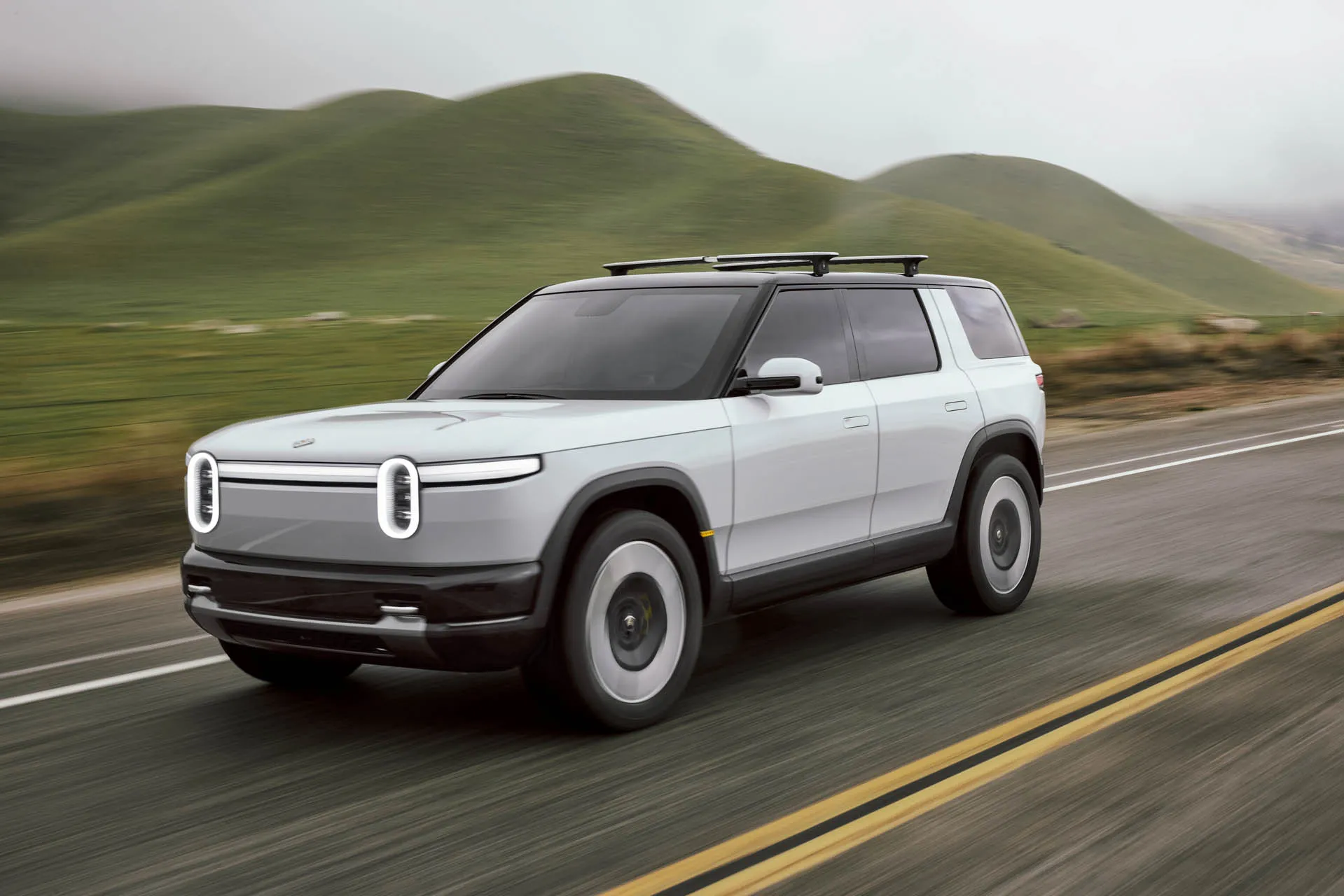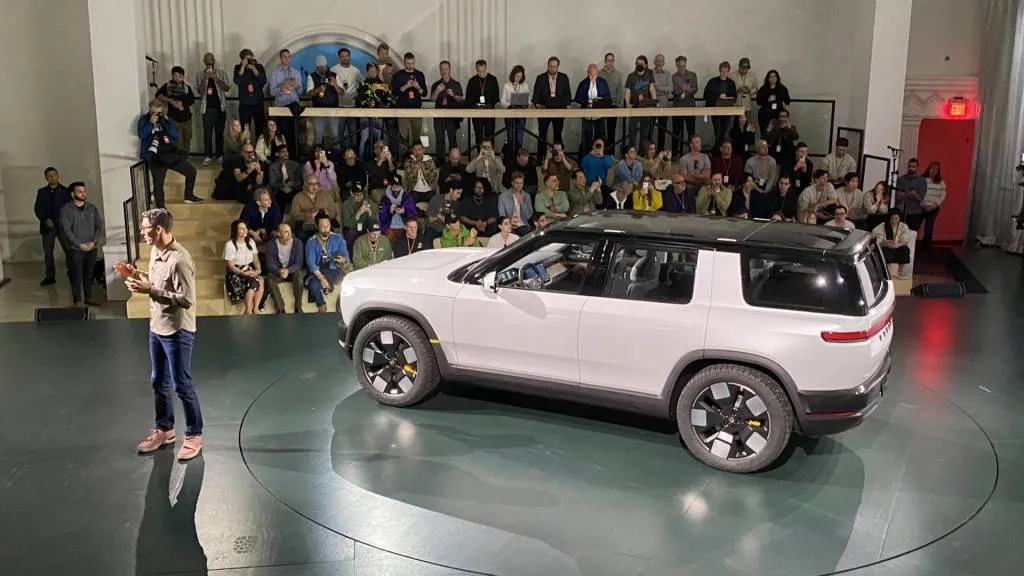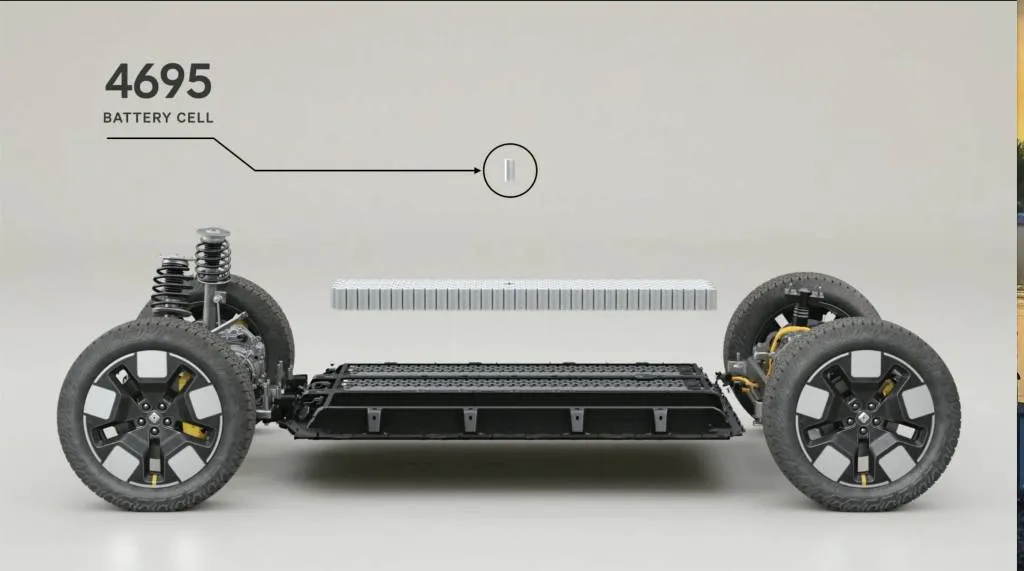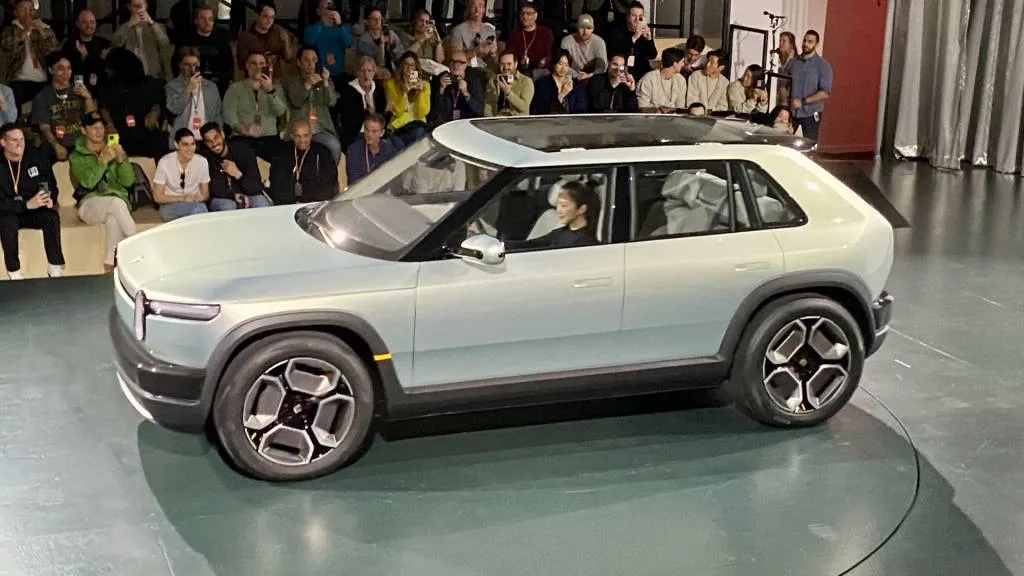

Rivian aims for 155,000 of its $45,000 R2 electric SUVs in Illinois
Just after the reveal of its more affordable R2, R3, and R3X models in March, Rivian announced plans to rejigger its production capacity at its existing plant in Illinois, to accommodate the R2 electric SUV at that plant instead of an even larger factory in Georgia that remains on the drawing board.
Recognizing that the R2 is critical to the company’s survival, Rivian included the following in its Q1 financial report, released Tuesday: “We believe launching R2 in Normal will create long-term value by driving greater capital efficiency and reducing risk to the R2 launch and associated ramp.”
With the update, Rivian also revealed exactly what that means in intended production numbers. It now intends to make 155,000 of its R2 electric SUV at the Illinois plant annually, with a total of 215,000 units including its other vehicles (consisting of the R1S SUV, R1T pickup, and EDV fleet vehicle).
That’s more R2s in a year than Rivian has delivered cumulatively—all models combined—since it started making deliveries in fall 2021. And it will take an expansion for Normal, which Rivian had previously said was limited to a plant capacity of about 150,000 vehicles per year.

Rivian R2
In the meantime, it says that it’s aiming to improve R1 production efficiency by about 30%.
With R2 included, the shift will represent a huge boost in production versus Rivian’s current levels. The company made 57,232 vehicles in all of 2023, while it made 13,980 vehicles in Q1 2024.
In Rivian’s Q1 investor call accompanying the announcement, Rivian’s CFO Claire McDonough said that the maximum capacity has some flexibility and will break out as up to 85,000 R1 models or up to 65,000 EDVs.
Rivian pointed out that the R1S was the fourth bestselling EV in the U.S. over the first quarter of 2024—after only the Tesla Model Y and Model 3, and the Ford Mustang Mach-E.

Rivian R2
The new midsize platform, called MSP, will be the basis for the R2, R3, and R3X, which Rivian underscored “are expected to deliver amazing performance, utility, and range at a significantly lower price point than our flagship R1.”
Rivian pointed to cost efficiencies at the core of the MSP vehicles, which will include the use of high-pressure die castings, a structural battery pack, and “simplified closures.” It’s also teased that it sees the potential for a model with half the carbon footprint of the R1S by 2030.
The R2 is expected to start around $45,000, with production set to start in the first half of 2026, according to Rivian.

Rivian R3
And then, potentially come the R3 and R3X. Rivian didn’t specify where those models would be built, but it again said that the R3 “has been designed with a high level of commonality with the R2,” and would be available internationally following a North American launch.
Whether that means confirming those models for the now-paused Georgia plant remains to be seen. Either way, Rivian would need another serious expansion to make room for R3 and, perhaps, more production space for R2. It’s potentially a predicament Rivian might be happy to face.
Add a comment Cancel reply
Comments (0)
Related posts


Electric SUVs: Top 6 Models for Family Trips











